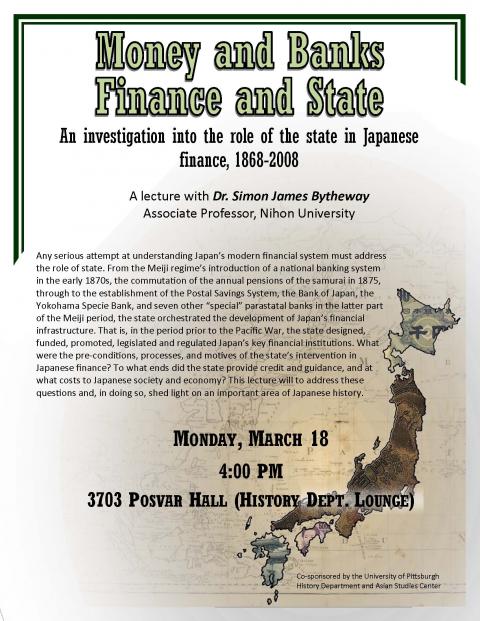
Any serious attempt at understanding Japan’s modern financial system must address the role of state. From the Meiji regime’s introduction of a national banking system in the early 1870s, the commutation of the annual pensions of the samurai with a single issue of kinroku kosai, or hereditary pension bonds, in 1875, through to the establishment of the Postal Savings System, the Bank of Japan, the Yokohama Specie Bank, and seven other “special” parastatal banks in the latter part of the Meiji period, the state orchestrated the development of Japan’s financial infrastructure. That is, in the period prior to the Pacific War, the state designed, funded, promoted, legislated and regulated Japan’s key financial institutions. Despite the enormous implications of the Meiji state’s intervention in all matters of money and banks, examination of the state’s subsequent role in Japanese finance remains one of the most neglected areas of study in modern Japanese historiography. Investigation into these matters raises many important questions, and reveals many issues of pressing contemporary relevance. For example, what were the pre-conditions, processes, and motives of the state’s intervention in Japanese finance? To what ends did the state provide credit and guidance, and at what costs to Japanese society and economy? This lecture will to address these questions and, in doing so, shed light on an important area of Japanese history.

